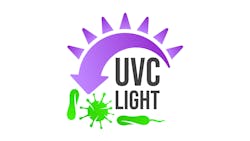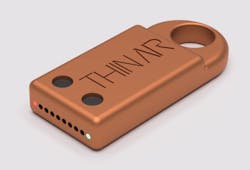UVc sterilization works in large health-care settings. What about dental offices?
If you haven’t heard of UVc sterilization technology for your dental practice, you’re not alone. According to James Wiebe, founder and CEO of Thin Air Energy, “The American Dental Association does not mention UVc sterilization technology in its Return to work interim guidance toolkit, so it's a likely bet that most dental offices are not using the technology. UV light technology is trending nationally and it’s being seen in articles such as this one on CNBC about dental practices considering the technology. So, I believe it is top of mind.”
UV light technology has been used in large health-care facilities with success, and as dentists search for ways to disinfect their offices during the pandemic, some are finding that UVc sanitizers are a good option.
What is UVc sterilization technology, and how can ultraviolet light kill germs? According to an article on the Verilux website, “UVC light sanitizer acts by penetrating the thin wall of a small microscopic organism and destroying its nucleic acids. This disrupts the DNA structure and either kills it or renders it unable to reproduce, and therefore harmless. As a result, the use of UVc light to sanitize and kill germs has many applications.”1
“UVc sanitizers fall into several categories,” Wiebe explains. “There is HVAC-based, portable or wall mounted, wand style, robot style, and more. Each has benefits and problems. Broadly stated, the big benefit is that UVc has been shown in rigorous testing to kill bugs and viruses. The biggest disadvantage is that UVc light can't reach everywhere, but clever designs in sanitization products is helping solve this issue.”
“Another issue is safety,” he continues. “Old research establishes maximum dosing of UVc radiation for people, while other research suggests that UVc risk is overstated. Either way, a good product provides absolutely no safety risk when properly used. The best argument for a self-contained UVc air sterilizer is ease of use: plug it in, it goes to work cleaning, sterilizing germs and viruses, removing particulates, and providing assurance to patients and employees. Other systems work by flooding work areas with UVc radiation when no one is around.”
Wiebe explains how he came up with the idea for Geiger UVc. “I was developing a couple of UVc sterilization products, and a colleague, who happens to be a former epidemiologist for the CDC, mentioned that I might need a way to measure dosing. With a background in sensor design (primarily for aerospace applications), I shifted gears slightly to UVc sensing. Geiger UVc was the result, and it provides instantaneous field level and cumulative dosing via a key-fob sized device.”
Wiebe recommends the use of UVc sterilization for dental practices. “Open UVc will provide assurance that an appropriate dosing has been delivered. Since it doesn't wear out, a single purchase investment is good for a lifetime of use. It also provides safety assurance that a UVc source is turned off or is not leaking radiation. Any practice using this technology (UVc irradiation in various forms, plus Geiger) can leverage this fact to their clientele.”
For more information about Thin Air and Geiger, visit thinairenergy.com.
Reference
1. UVc Light and UV light sanitizers. Verilux. https://verilux.com/pages/uvc-light-uv-light-sanitizers
About the Author

Meg Kaiser
Associate Editor
Meg Kaiser is an associate editor in Endeavor Business Media’s Dental Division. She works on DentistryIQ.com, RDH eVillage and RDH Graduate newsletters, Dental Economics magazine, and RDH magazine, and has for nearly 20 years. She knew she'd caught the dental bug when she began preaching oral-systemic health to everyone she met. Contact her at [email protected].

